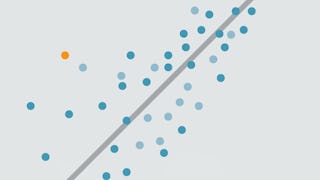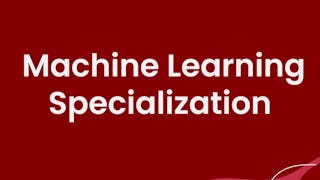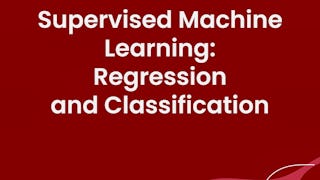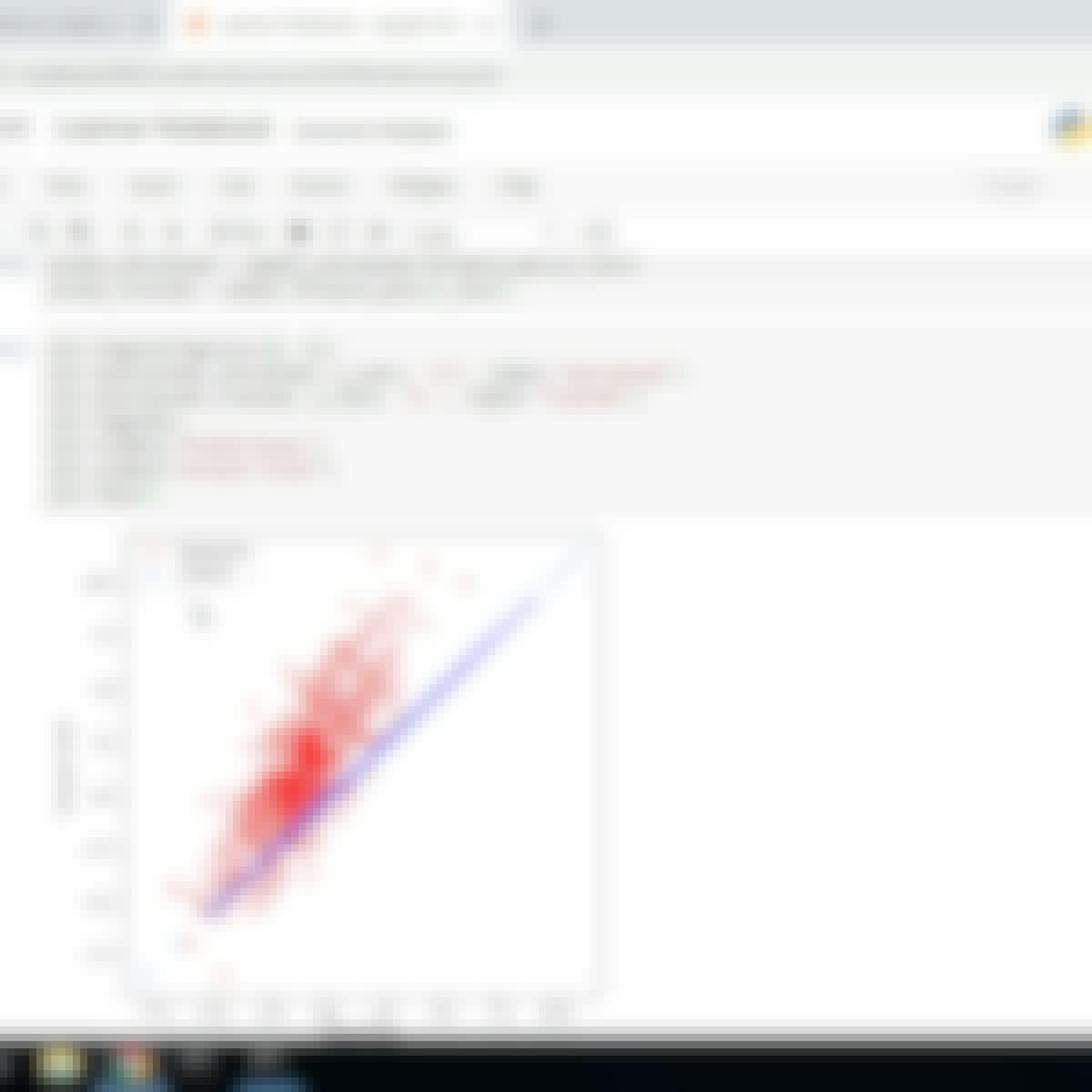Filter by
SubjectRequired
LanguageRequired
The language used throughout the course, in both instruction and assessments.
Learning ProductRequired
LevelRequired
DurationRequired
SkillsRequired
SubtitlesRequired
EducatorRequired
Explore the Regression Course Catalog
 Status: Free Trial
Status: Free TrialJohns Hopkins University
Skills you'll gain: Regression Analysis, Statistical Analysis, Statistical Modeling, Correlation Analysis, Data Analysis, Statistical Methods, Predictive Modeling, Probability & Statistics, Statistical Inference
 Status: Free Trial
Status: Free TrialDuke University
Skills you'll gain: Regression Analysis, R (Software), Statistical Analysis, R Programming, Statistical Modeling, Statistical Inference, Correlation Analysis, Data Analysis, Statistical Methods, Exploratory Data Analysis, Mathematical Modeling, Statistics, Predictive Modeling
 Status: New
Status: NewSkills you'll gain: Feature Engineering, Supervised Learning, Exploratory Data Analysis, Machine Learning Algorithms, Applied Machine Learning, Decision Tree Learning, Predictive Modeling, Data Analysis, Scikit Learn (Machine Learning Library), Machine Learning, Classification And Regression Tree (CART), Statistical Modeling, Pandas (Python Package), NumPy, Data Cleansing, Data Manipulation
 Status: Free Trial
Status: Free TrialSkills you'll gain: Regression Analysis, Statistical Hypothesis Testing, Data Analysis, Advanced Analytics, Statistical Analysis, Correlation Analysis, Analytical Skills, Business Analytics, Supervised Learning, Statistical Modeling, Scikit Learn (Machine Learning Library), Variance Analysis, Predictive Modeling, Probability & Statistics, Exploratory Data Analysis, Machine Learning, Python Programming
 Status: Free Trial
Status: Free TrialMultiple educators
Skills you'll gain: Unsupervised Learning, Supervised Learning, Classification And Regression Tree (CART), Artificial Intelligence and Machine Learning (AI/ML), Applied Machine Learning, Machine Learning, Jupyter, Data Ethics, Decision Tree Learning, Tensorflow, Responsible AI, Scikit Learn (Machine Learning Library), NumPy, Predictive Modeling, Deep Learning, Artificial Intelligence, Reinforcement Learning, Random Forest Algorithm, Feature Engineering, Python Programming
 Status: Free Trial
Status: Free TrialDeepLearning.AI
Skills you'll gain: Supervised Learning, Applied Machine Learning, Jupyter, Scikit Learn (Machine Learning Library), Machine Learning, NumPy, Predictive Modeling, Feature Engineering, Artificial Intelligence, Classification And Regression Tree (CART), Python Programming, Regression Analysis, Statistical Modeling, Data Transformation
What brings you to Coursera today?
 Status: Free Trial
Status: Free TrialSkills you'll gain: Bayesian Statistics, Descriptive Statistics, Statistical Hypothesis Testing, Statistical Inference, Sampling (Statistics), Data Modeling, Statistics, Probability & Statistics, Statistical Analysis, Statistical Methods, Statistical Modeling, Marketing Analytics, Tableau Software, Data Analysis, Spreadsheet Software, Analytics, Time Series Analysis and Forecasting, Regression Analysis
 Status: Free Trial
Status: Free TrialSkills you'll gain: Supervised Learning, Regression Analysis, Predictive Modeling, Machine Learning, Statistical Modeling, Classification And Regression Tree (CART), Scikit Learn (Machine Learning Library), Feature Engineering, Statistical Analysis, Performance Metric
 Status: Free Trial
Status: Free TrialMacquarie University
Skills you'll gain: Time Series Analysis and Forecasting, Forecasting, Financial Forecasting, Regression Analysis, Microsoft Excel, Demand Planning, Excel Formulas, Trend Analysis, Case Studies, Business Mathematics, Predictive Modeling, Business Metrics, Data Presentation, Statistical Visualization, Graphing, Market Trend, Business Economics, Statistical Modeling, Business Analytics, Decision Making

Coursera Project Network
Skills you'll gain: Regression Analysis, NumPy, Applied Machine Learning, Supervised Learning, Machine Learning, Predictive Modeling, Deep Learning, Data Science, Python Programming
 Status: Preview
Status: PreviewSkills you'll gain: Time Series Analysis and Forecasting, Exploratory Data Analysis, Feature Engineering, Statistical Analysis, Forecasting, Regression Analysis, Python Programming, Data Analysis, Predictive Modeling, Pandas (Python Package), Scikit Learn (Machine Learning Library), Machine Learning Algorithms, Supervised Learning, Data Cleansing, Data Transformation
 Status: Free Trial
Status: Free TrialRice University
Skills you'll gain: Statistical Hypothesis Testing, Regression Analysis, Statistical Analysis, Statistical Modeling, Statistical Inference, Business Analytics, Microsoft Excel, Estimation, Data Analysis, Data Transformation
In summary, here are 10 of our most popular regression courses
- Regression Models: Johns Hopkins University
- Linear Regression and Modeling : Duke University
- Python: Logistic Regression & Supervised ML: EDUCBA
- Regression Analysis: Simplify Complex Data Relationships: Google
- Machine Learning: DeepLearning.AI
- Supervised Machine Learning: Regression and Classification : DeepLearning.AI
- Statistics Foundations: Meta
- Supervised Machine Learning: Regression: IBM
- Excel Skills for Business Forecasting: Macquarie University
- Linear Regression with Python: Coursera Project Network










